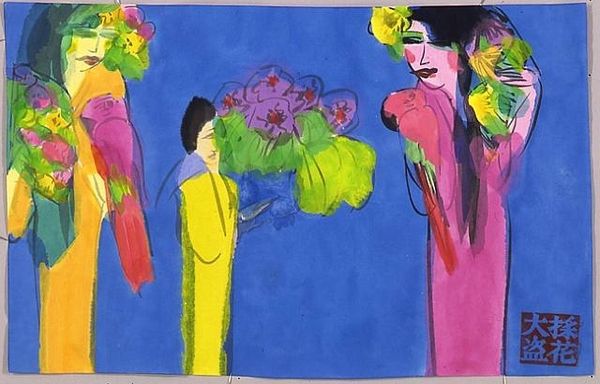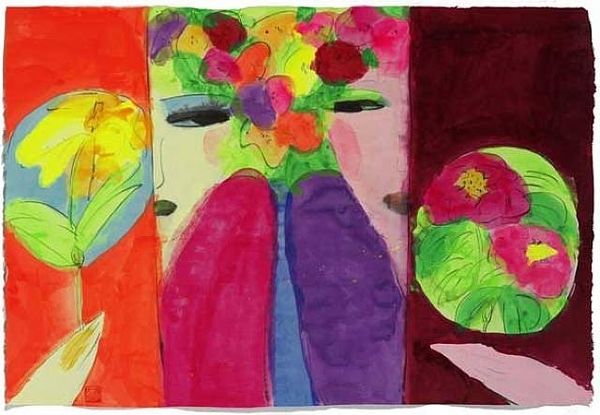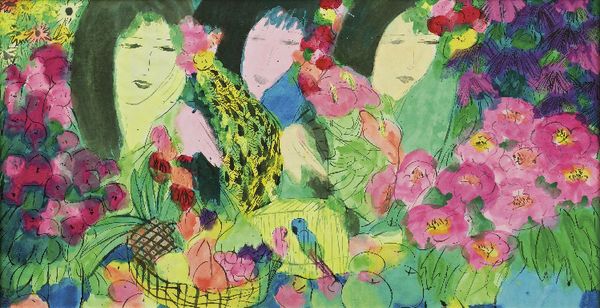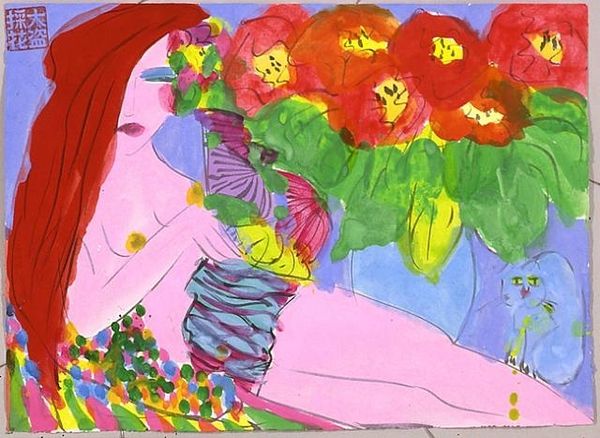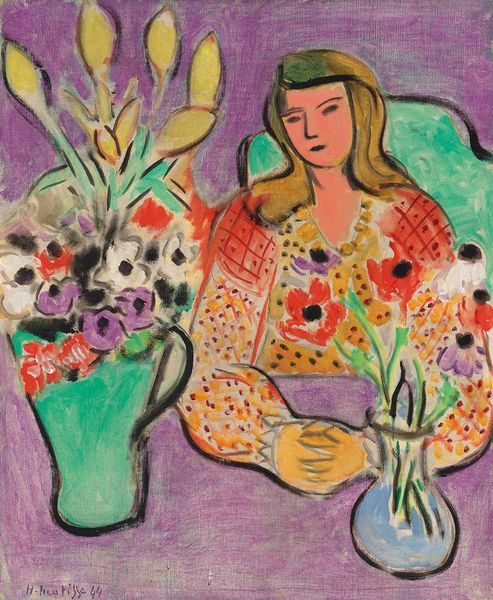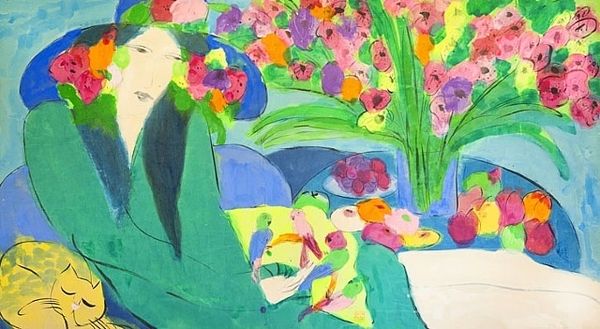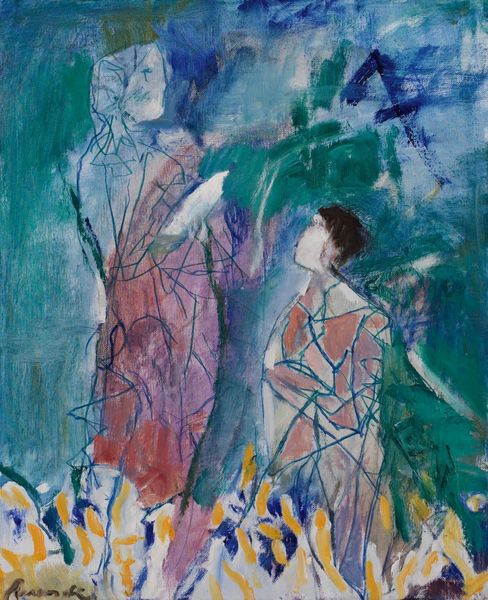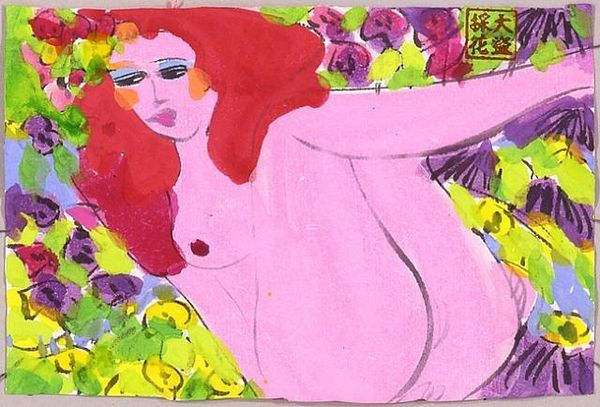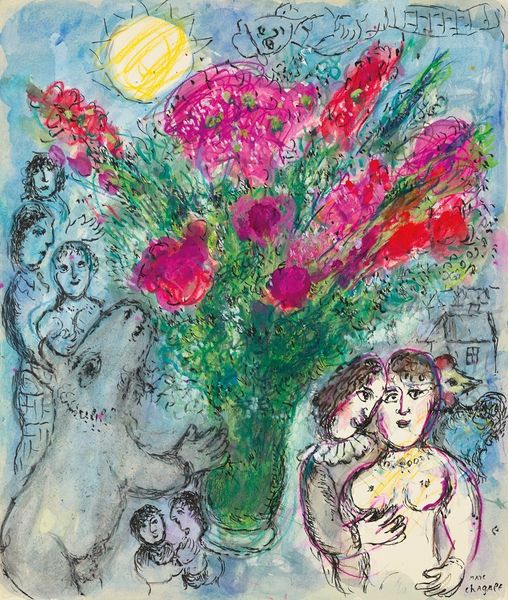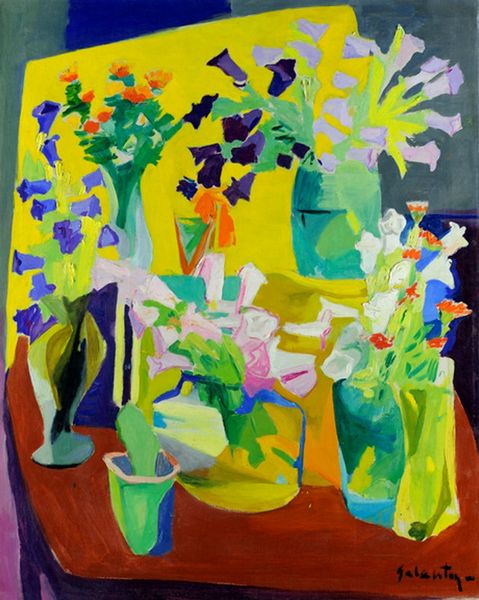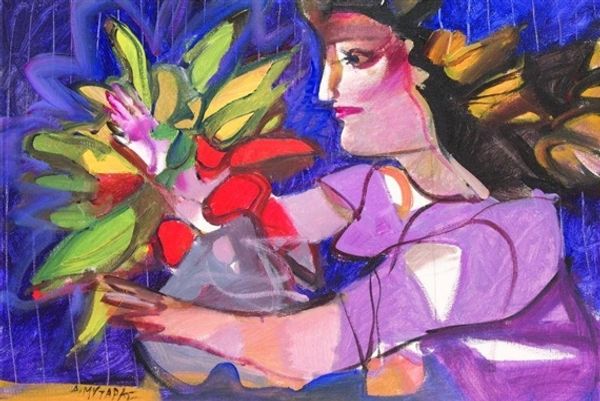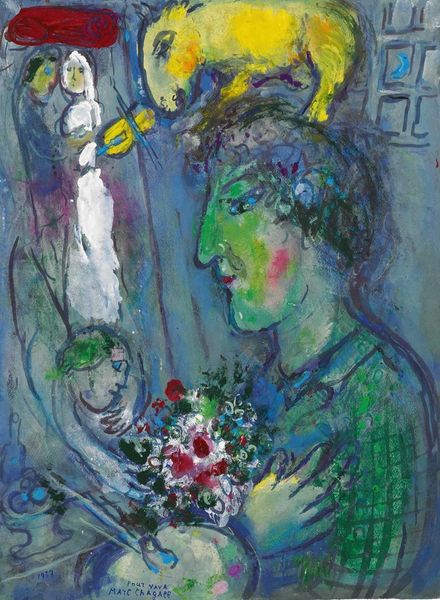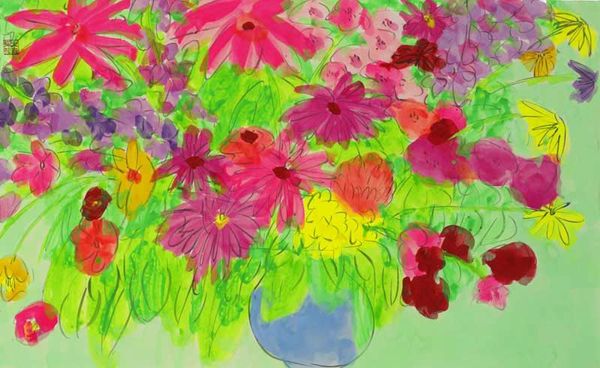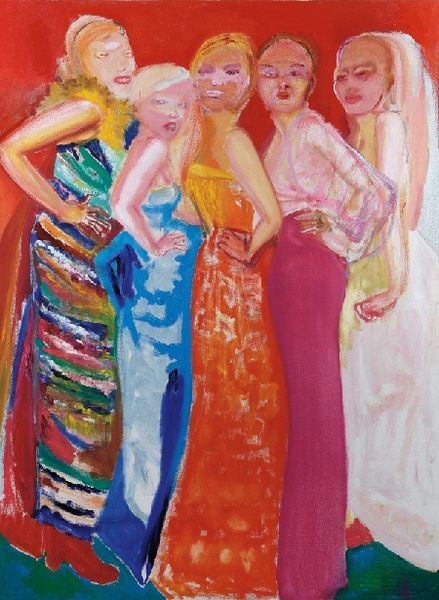
#
abstract painting
#
pop art
#
flower
#
mural art
#
handmade artwork painting
#
fluid art
#
acrylic on canvas
#
naive art
#
pop art-influence
#
painting art
#
watercolour illustration
Copyright: Walasse Ting,Fair Use
Curator: Walasse Ting's "Let's Try It With Flowers," painted in 1985, offers a vibrant, almost childlike take on a classic subject. What's your initial impression? Editor: It's joyful, almost aggressively so! Like a party bursting off the canvas. The colours feel very deliberately… naive? Almost as if a child took hold of an adult's colour palette and ran wild. Curator: Indeed. Ting was associated with the CoBrA group, who were reacting against the strictures of formalism by championing spontaneity, vivid colour and embracing techniques from folk art and children's art. Note the use of acrylic on canvas, a shift away from more traditional media, making art more accessible both to produce and consume. Editor: And those women… are they almost dolls, or maybe ghosts? They feel decorative rather than real. And the flowers become almost a screen, hiding them further. Curator: I find the arrangement speaks to the commodification of beauty. The flowers, a luxury, are presented and clutched as status symbols. Also observe the depiction of women; critics argue they reflect Ting’s own complex views on gender and cultural identity, caught between Western and Eastern aesthetics. Editor: It's fascinating how the almost slapdash quality adds to this sense of unease. You think it's this simple, fun picture and yet the longer you look, the stranger and sadder it becomes. It’s unsettling. Curator: Perhaps this reflects Ting’s intention; he wanted to challenge conventional art boundaries, incorporating influences from pop art. These parrots, or figures holding floral arrangements… they prompt discourse about cultural hybridity and value of mass-produced objects within "high art." Editor: For all its brightness, there's a real feeling of something brittle here, something performative. The 'Let’s Try It' suggests it, too - a kind of experimental quality that, to me, doesn't quite feel like it succeeds in being genuine, even in its naïveté. Curator: Ultimately, it shows how playful experimentation with both medium and representation opens complex layers beneath a surface that is deceptive and cheerful. Editor: Right, the subversion becomes part of the spectacle. Always something worth taking note of when looking at art, no?
Comments
No comments
Be the first to comment and join the conversation on the ultimate creative platform.
